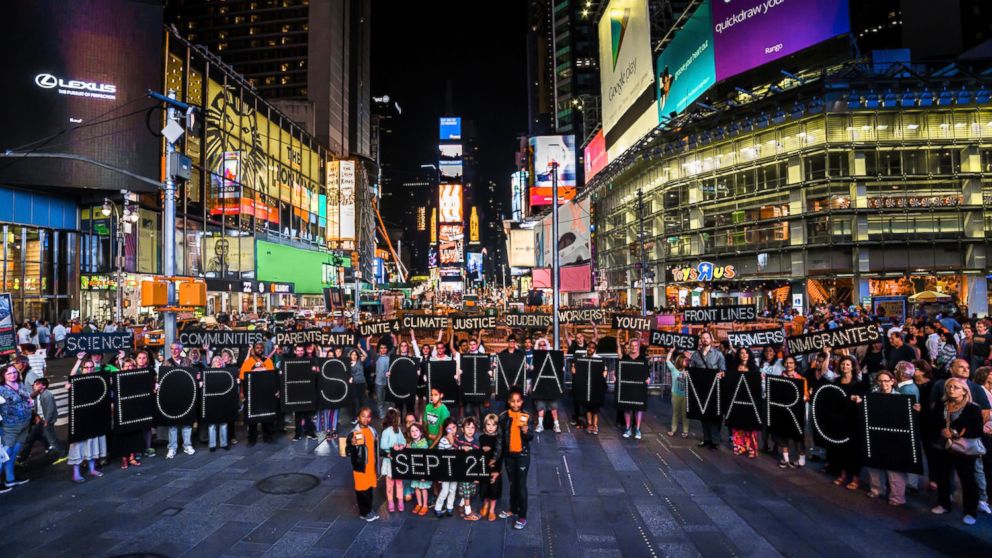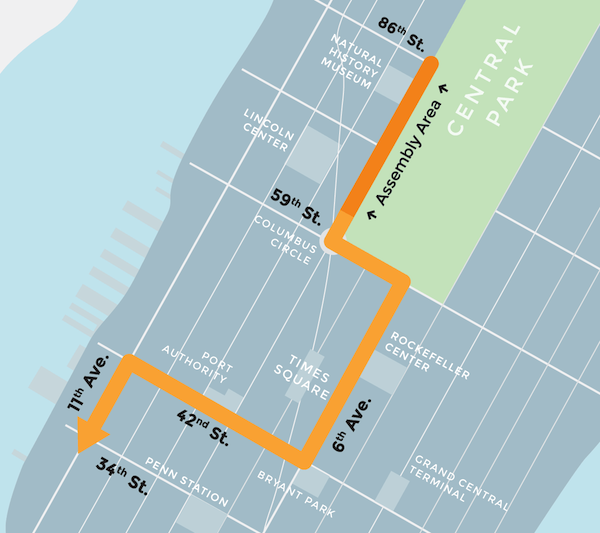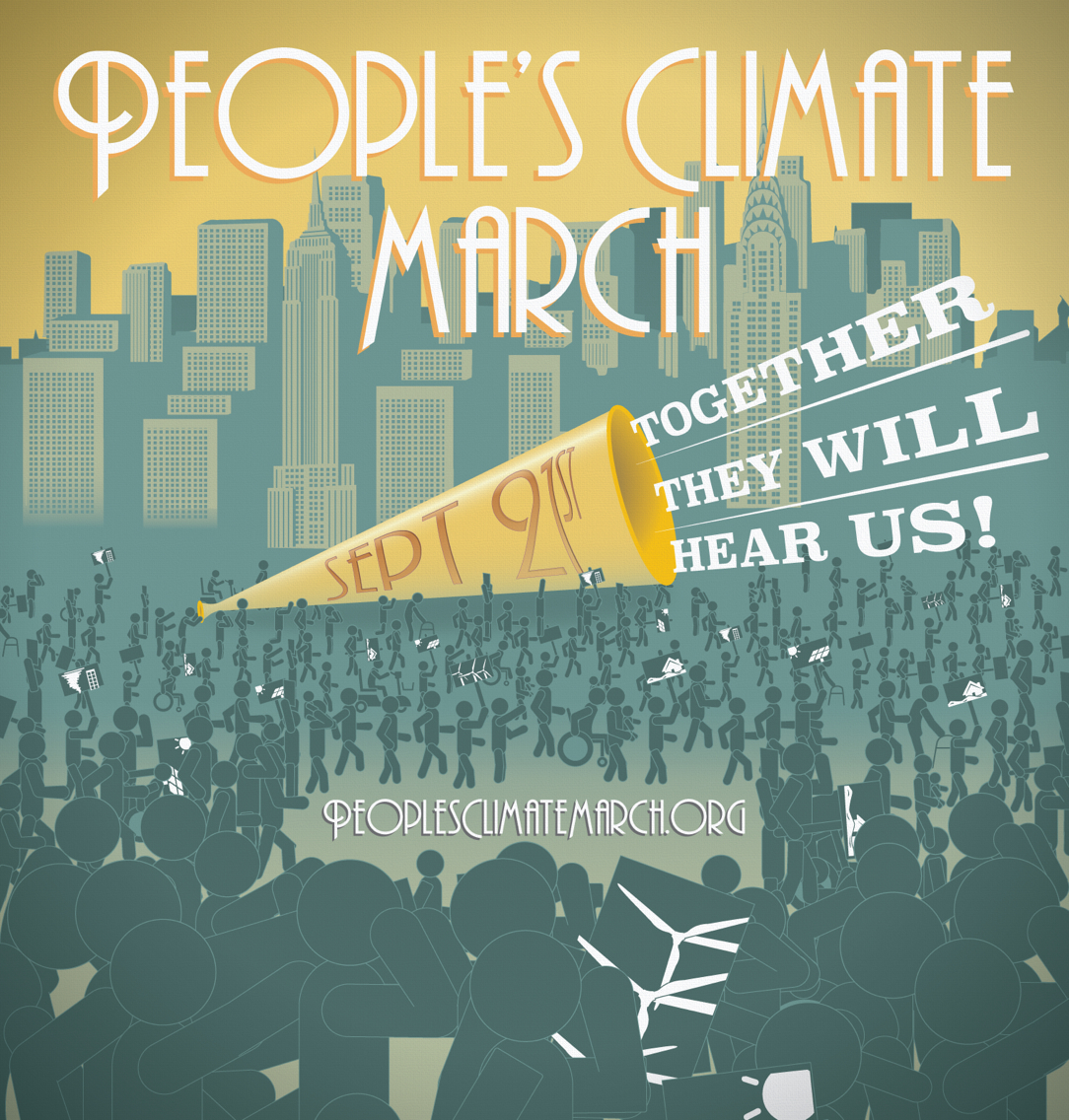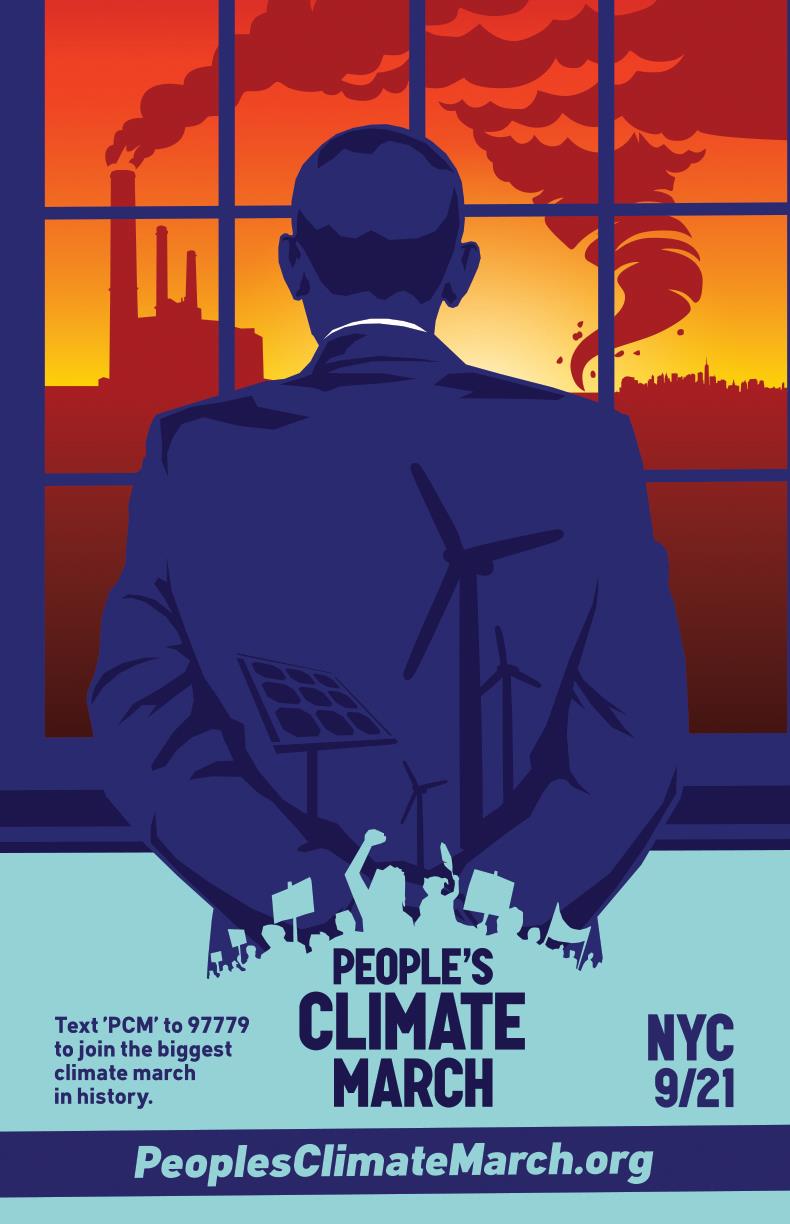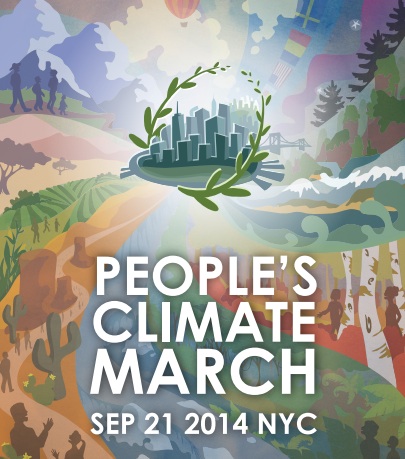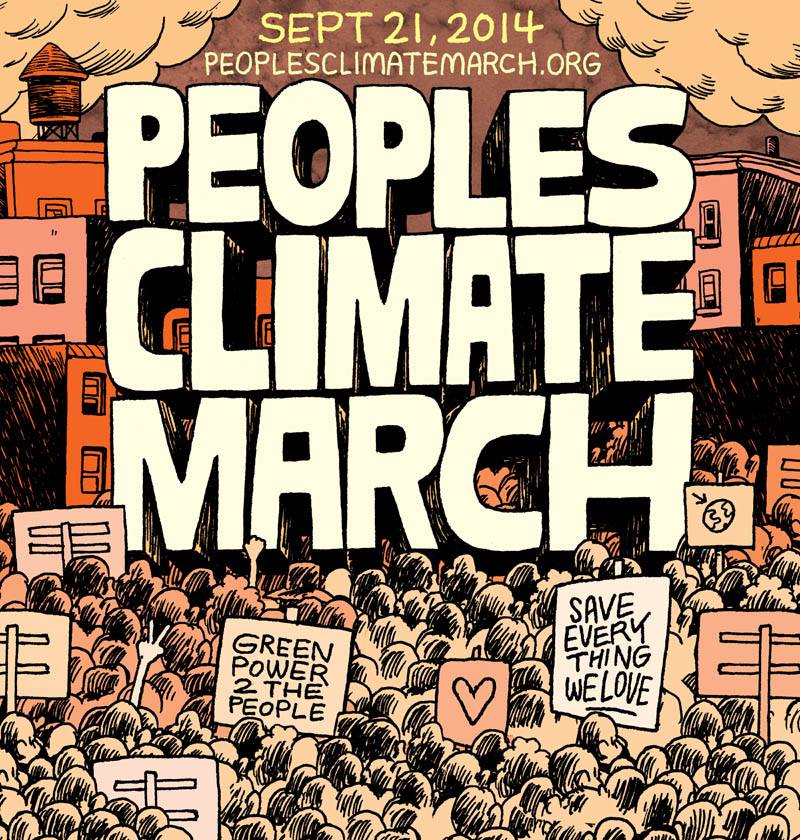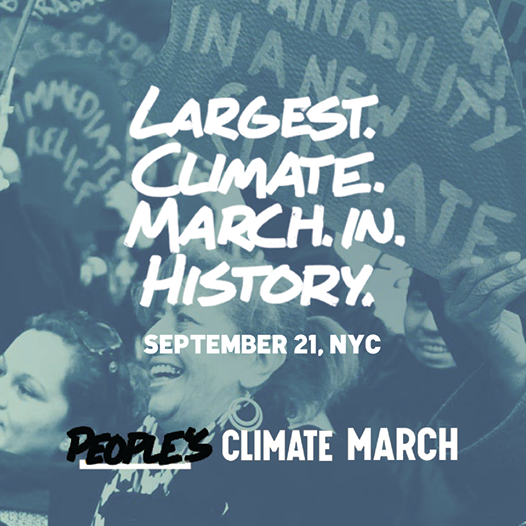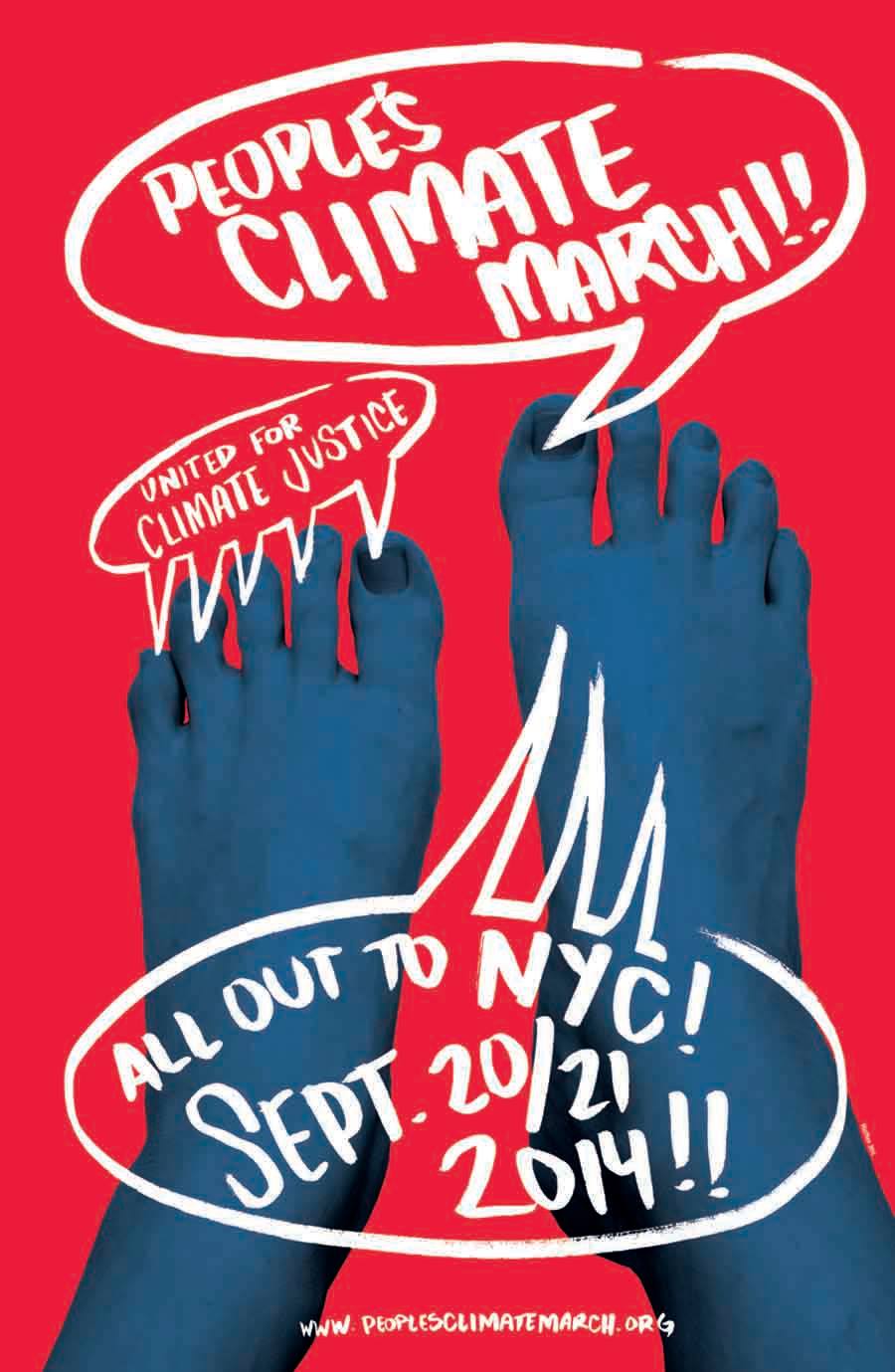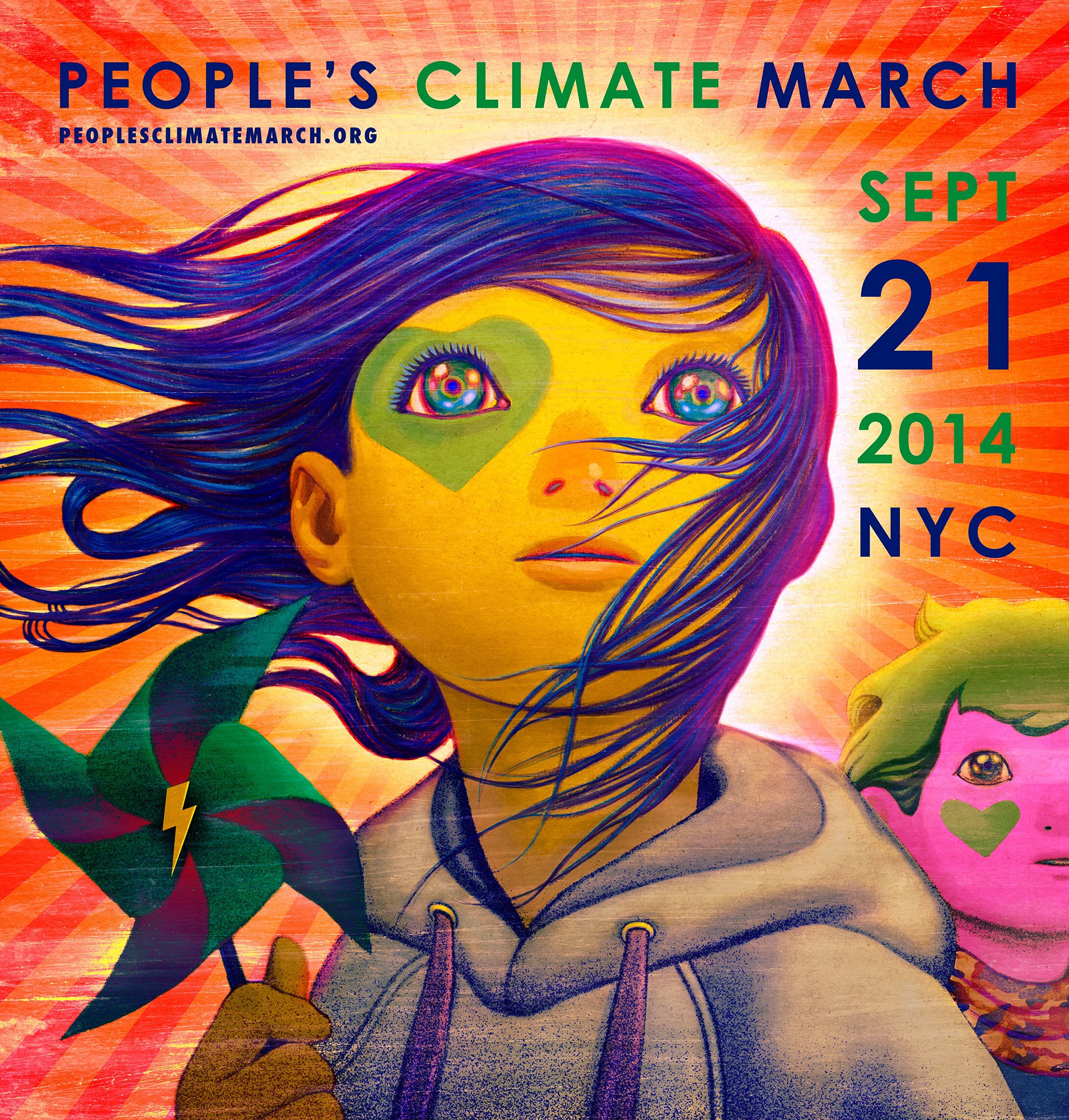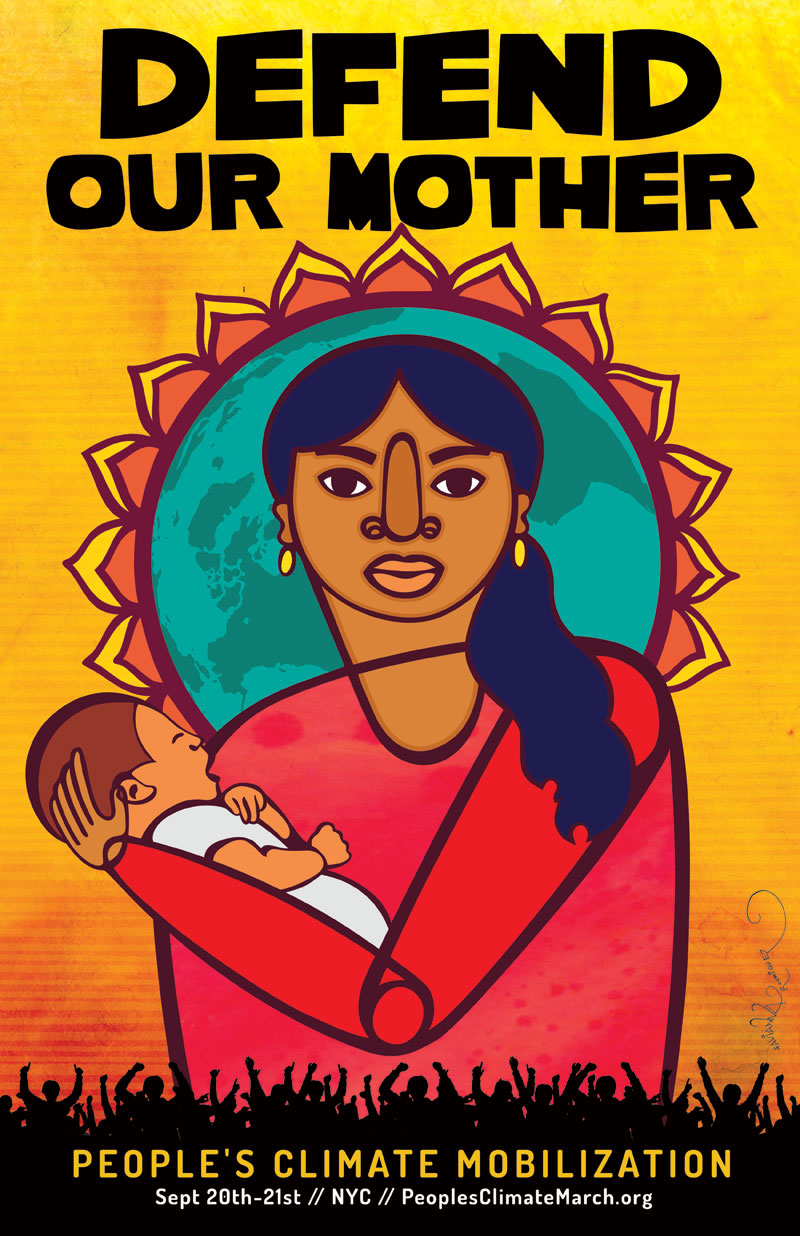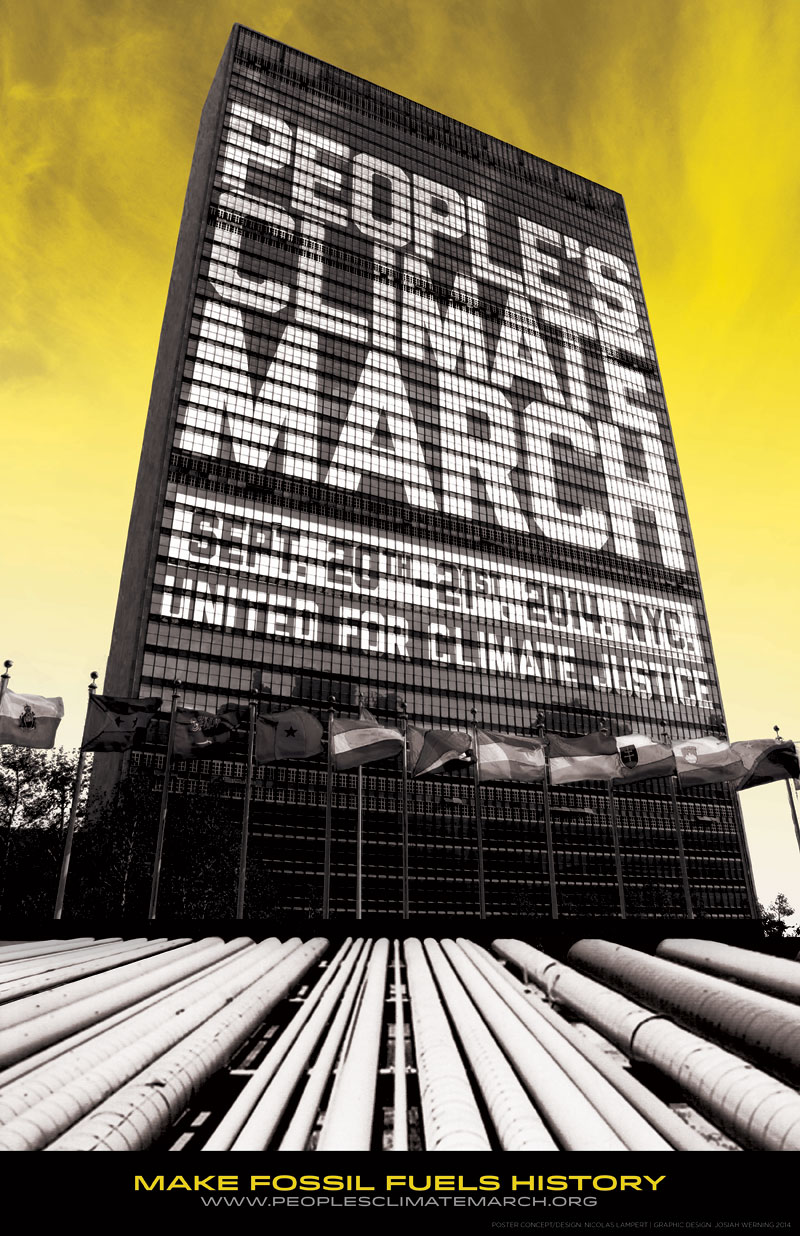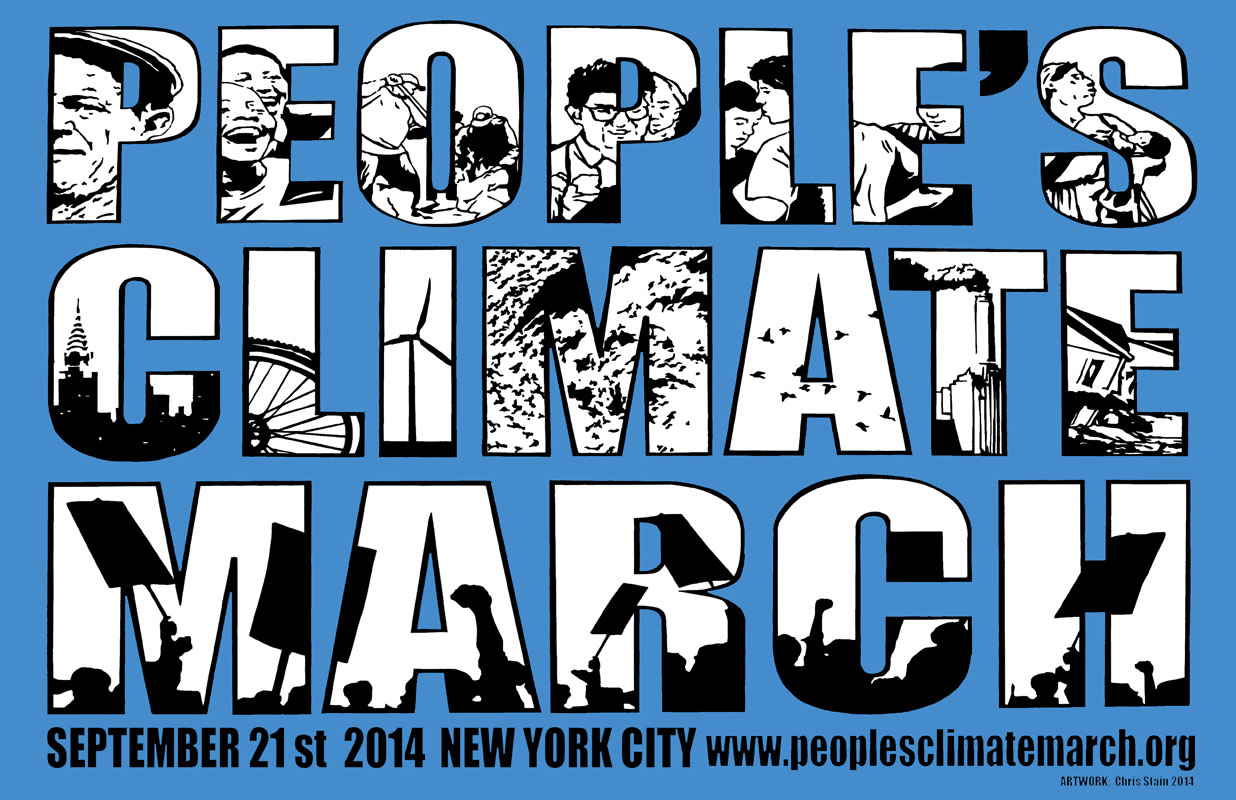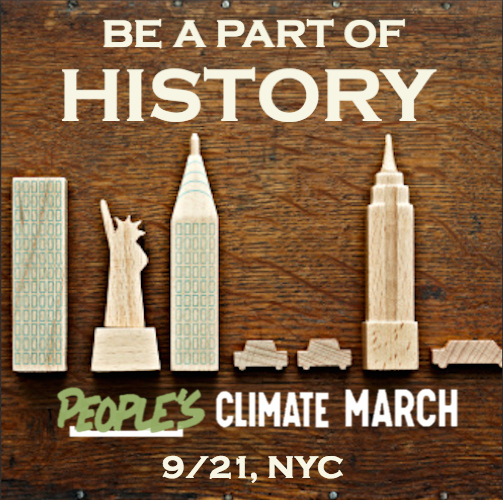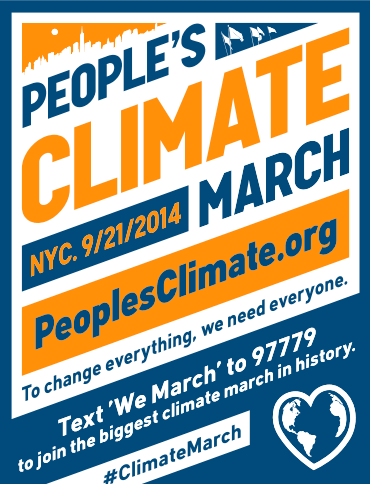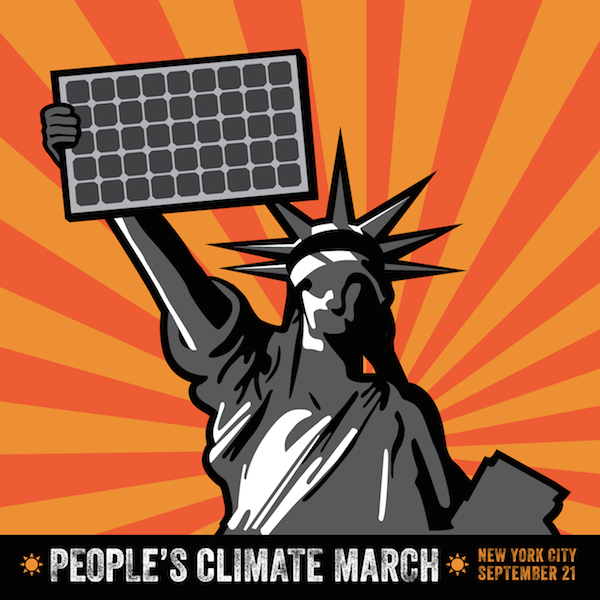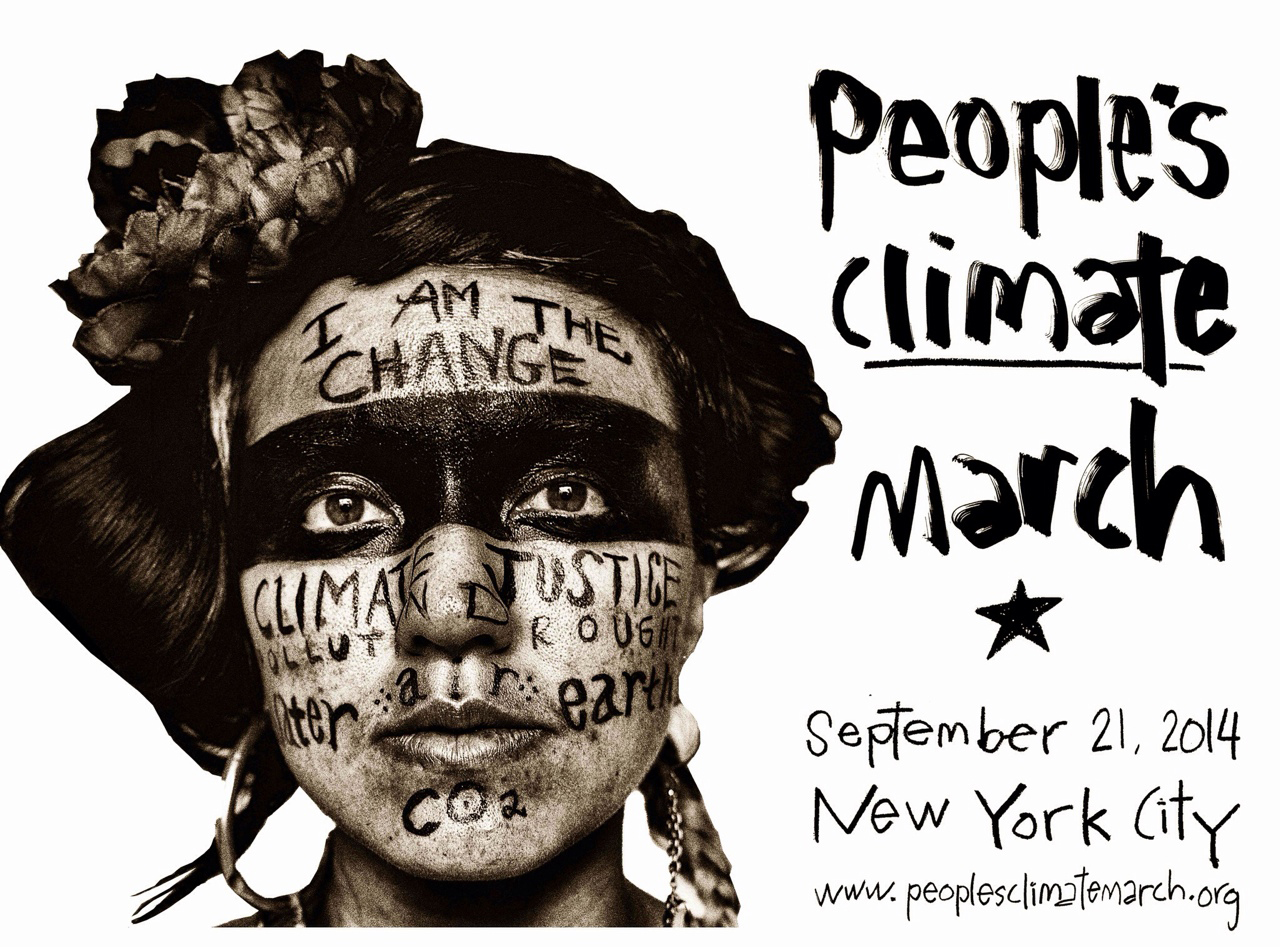On Sept. 15 at 9:10 a.m., scores of climate activists will board the California Zephyr, an Amtrak train leaving from Emeryville, Calif., just outside Oakland. Over the next four days they'll travel cross country by rail, passing through breathtaking nature as they engage with local environmental activists at whistle stop rallies – part of what organizers say is the largest mobilization in history to address climate change.
Prompting this continent-wide journey is a climate summit called by UN Secretary General Ban Ki-moon for Sept. 23 in New York City, which seeks to galvanize meaningful CO2 reduction commitments by world leaders ahead of next year's COP 21 climate summit in Paris. Moon is asking UN representatives to “bring bold announcements and actions to the summit that will reduce emissions, strengthen climate resilience, and mobilize political will for a meaningful legal agreement in 2015.”
Valerie Love, one of the train's organizers, works with the Center for Biological Diversity and has been an advocate on climate-related issues for more than a decade. “I am a 29-year-old woman and have a deep desire to have a family,” she said. “Knowing the science of climate change – the idea of bringing a child into a world with so much uncertainty and ecological destabilization – is really scary. I see it as my duty to work for a safe, healthy, and livable world.”
Challenging the void in professional political leadership on climate change, an invitation by 350.org founder Bill McKibben ran in the June 5 issue of Rolling Stone with the not-so-subtle title, “A Call to Arms: An Invitation to Demand Action on Climate Change." In it, McKibben encouraged everyone concerned about climate change to descend on New York City in advance of the September UN Climate Summit to create a transformational moment and open up “space for change on the scale physics requires.”
Heeding the call, 350.org and global activist organization Avaaz partnered with over 1,000 groups to organize the People’s Climate March. Over the last four months, organizers have worked to mobilize hundreds of thousands of marchers to make next Sunday's protests a historic, mass mobilization. Last weekend, the movie Disruption premiered in movie theaters across the nation building further momentum for the march.
Building Toward the March
Shortly after reading McKibben's announcement in early summer, Love was socializing in a hot tub in Oakland. “We were talking about how it would be awesome to get more people to New York City from the West Coast,” she told me recently over coffee near her home in Berkeley. The idea emerged to organize a caravan where climate activists could ride together on a train to the Manhattan protests. “350 was immediately interested” in helping arrange a People’s Climate Train](http://peoplesclimatetrain.weebly.com), Love said, and the following Monday she pitched the idea to her supervisor at the Center for Biological Diversity. News of the caravan quickly spread through social networks, and “the idea really sparked two weeks later when Sister Santussika of Buddhist Global Relief got involved, promising to recruit people and set up a website.”
Ayya Santussika Bhikkhuni, a nun ordained in the Theravāda tradition of Buddhism and founder of the Karuna Buddhist Vihara in Mountain View, Calif., participates in the Dharma Teachers International Collaborative on Climate Change. A mother prior to becoming a Buddhist nun, Ven. Santussika said, “The truth is, the same urgency arises as I look at any child. We are responsible for safeguarding their future. [Climate destruction] is personal, so I must take the responsibility to do all that I can to stop this madness.”
Ven. Santussika regularly attends 350.org Silicon Valley meetings and it was at one of those meetings where she helped develop the idea of activists “taking buses or trains together across the country” toward the People's Climate March. “People seemed interested but not ready to get involved,” she recalled. But the following morning, Ven. Santussika received a forwarded email by Valerie Love looking for people to help organize the trip. By "that afternoon we were on the phone planning the People’s Climate Train."
As interest has grown in the months since, they've blocked out more than 100 Amtrak seats for activists committed to traveling from the West Coast. In addition, 12 scholarships have been awarded by Communities for a Better Environment to carry Indigenous teens and young adults with their chaperones to New York. Dozens more activists will be boarding the train on its four-day journey east using discount tickets – an arrangement Love helped negotiate with the train company.
Protesters, and other Americans who will be following the New York event, are well aware of the limits – and disappointments – of official climate summits in the past. Since the collapse of the Copenhagen Summit in 2009, global leaders have faced increasing pressure to commit to aggressive emission reduction targets. While the New York summit, titled "Catalyzing Action," will involve no actual negotiating toward a legally binding international climate treaty under the UN Framework Convention on Climate Change (UNFCCC), activists say that individual nations' leadership along with private sector pledges must start to turn the tide ahead of the 2015 Paris summit.
A recent leaked IPCC report on climate impacts made international headlines, presenting the starkest official language to date on the human-made evidence of irreversible climate change. As some island nations begin to slip beneath the waves of the Pacific, the failure of global leaders to provide solutions to the crisis has led many to question whether the changes required to confront climate catastrophe are even possible under current global capitalism.
When the Crowds Hit New York
Back in New York, a major mobilization is in full swing. In an Aug. 22 press release, the media team of the People’s Climate March said the effort rivaled the scale of “a major electoral campaign, with thousands of volunteers, daily phone-banks and canvasses in NYC, and a major online operation to turn out marchers.” During a visit to the group's central organizing office on the corner of 42nd Street and Madison Avenue, I saw an office humming with activity as multiple meetings were held daily with dozens of organizers working to pull off what they hope becomes the largest climate march in history.
Simultaneously, major mobilizations and marches are being planned across the world – from Rio De Janeiro and New Delhi to Paris, Berlin, London and Melbourne. Organizing is also taking place on over 300 college campuses around the eastern half of the U.S., drawing in the participation of students.
U.S. Senators from Connecticut, Chris Murphy and Richard Blumenthal, recently gathered for a press conference at New Haven's Union Station to announce that they'd brokered a deal with New York's Metropolitan Transportation Authority to provide discounted tickets to marchers coming from Connecticut (Tickets must be purchased before 11 p.m. on Sept. 17.) Local groups in Long Island and New Jersey are also encouraged to buy bulk discounted tickets in advance.
Caravans by train aren't the only way protesters are getting to New York. Vanessa Tsimoyianis, a logistics organizer for non-profits and the transportation coordinator for the People’s Climate March, said that officially more than 120 buses coming from 29 states – as well as three from Canada – have been arranged. (Go here to see the full list of transport options). In a phone interview last week, however, Tsimoyianis said these numbers represent only the buses listing themselves publicly because they still have seats to fill; in fact, over 325 buses are expected to bring thousands of marchers from across the U.S. to New York by the end of the week, she said.
Far from the bustle of midtown Manhattan, the People’s Climate Art Team has set up an arts space in Bushwick, Brooklyn, at theMayday Bar and Community Space. On a recent Sunday afternoon, I visited the space where dozens of artist activists were painting banners and signs to be carried in the march. Displayed prominently near the entrance to the Mayday Bar was a large calendar listing diverse events: from a family art build and a Bike Bloc, to Direct Action Support Hub (DASH) and a spokes council designed to support the actions of those engaging in civil disobedience.
While both the 42nd Street office and the Mayday space are used extensively as spots for activists to meet, many more gatherings to mobilize support and organize direct actions are taking place throughout the city in the radical salons and union halls frequented by New York’s activist scene.
What Will Success Look Like?
During informal conversations with organizers from California to New York, a clear and single idea of what success means for the People's Climate March – other than a lot of people showing up – has been lacking. Some invoke the transformational moments that coincided with the Civil Rights March on Washington for Jobs and Freedom, or the Nuclear Disarmament Mobilization in Central Park three decades ago. But those movements had a clear and succinct statement about the transformations they wanted to see society undergo. By comparison, the People's Climate March webpage reads in some sense like a Zen koan, stating prominently, “This is an invitation to change everything,” where an undefined “everything” takes on the meaning of both anything and nothing at once.
In fairness, the ambiguity in the call to change “everything” may have in fact been a shrewd organizing strategy to build a mass movement that now has more than 1,000 organizations participating and offering their various solutions. Organizers haven't been shy about their underlying intentions: using the September march in Manhattan as a platform on which to build an international environmental social movement unlike any previously seen.
In tomorrow's installment we'll look in greater detail at the messaging strategies on the ground in New York and other activities occurring around the People's Climate March. Gary Roland was an early organizer at Occupy Wall Street where he helped form the Legal Activist Working Group, Labor Outreach Committee and OWS Facilitation Working Group. He later participated in Occupy Sandy relief efforts. Follow him @NYCCamp.
3 WAYS TO SHOW YOUR SUPPORT
- Log in to post comments


